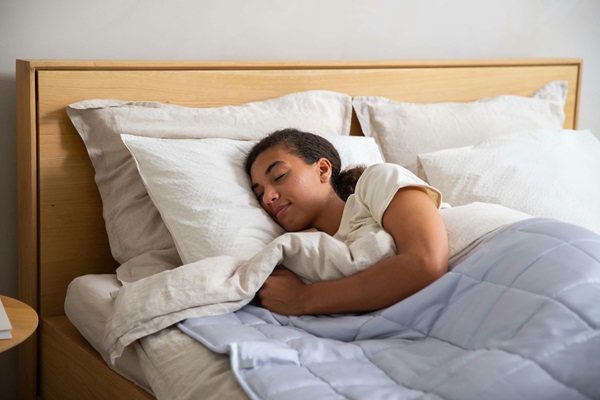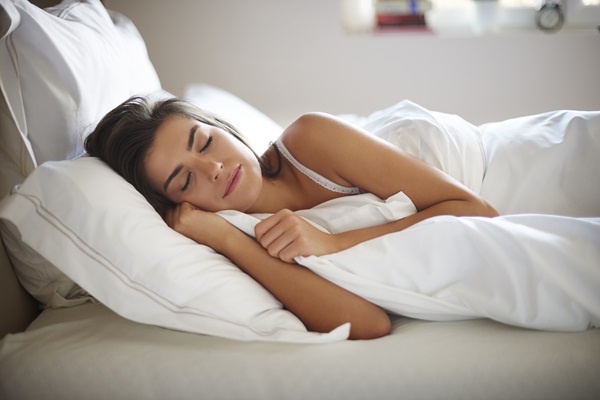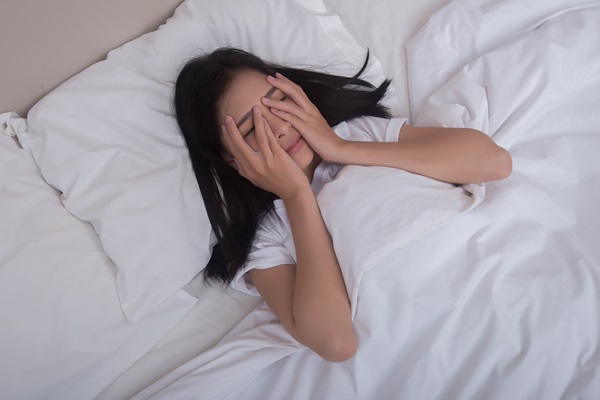In our hectic lives, sleep often takes a backseat. We’re quick to trade hours of rest for the pursuit of productivity or entertainment. But what many fail to realize is that the quality of our sleep plays a pivotal role in our overall health and well-being. In this article, we’ll delve into sleep quality tips, their importance, and how they can significantly impact our lives.

Understanding Sleep Quality
Defining Sleep Quality
Sleep quality is more than just the number of hours you spend in bed. It’s a measure of how effectively your body and mind rejuvenate during those hours. Quality sleep leaves you feeling refreshed, alert, and ready to face the day.
Factors Influencing Sleep Quality
Several factors influence the quality of your sleep. These include your sleep environment, lifestyle choices, and any underlying medical conditions. By addressing these factors, you can significantly improve your sleep quality.
The Sleep Cycle
Stages of the Sleep Cycle
Sleep isn’t a uniform experience; it consists of several stages. The sleep cycle comprises four main stages: NREM Stage 1, NREM Stage 2, NREM Stage 3, and REM (Rapid Eye Movement) sleep. Understanding these stages can help you comprehend your sleep patterns.
The Role of Each Sleep Stage
Each stage of the sleep cycle serves a unique purpose. NREM stages promote physical restoration, while REM sleep is crucial for cognitive functioning and emotional well-being. A balanced sleep cycle is essential for overall health.
Sleep Disorders and Their Effects
Common Sleep Disorders
Sleep disorders such as insomnia, sleep apnea, and restless leg syndrome can disrupt sleep quality. Recognizing the symptoms and seeking treatment is vital.
The Consequences of Untreated Sleep Disorders
Left untreated, sleep disorders can lead to a range of health issues, including cardiovascular problems, mood disorders, and impaired cognitive function.
The Benefits of Good Sleep Quality
Cognitive Benefits
Quality sleep is a cognitive enhancer. It sharpens your focus, memory, and problem-solving abilities. A well-rested mind is more efficient and productive.
Emotional Benefits
Adequate sleep plays a pivotal role in regulating mood. It reduces irritability, anxiety, and depressive symptoms. A good night’s sleep can make a world of difference in your emotional well-being.
Physical Benefits
The body repairs and rejuvenates during sleep. This is when tissue growth and repair occur, and the immune system is strengthened. Quality sleep is essential for physical health and vitality.
Creating an Ideal Sleep Environment
Temperature and Humidity
A cool, well-ventilated room with moderate humidity is conducive to quality sleep. Extreme temperatures can lead to discomfort and disrupted rest.
Lighting Conditions
Darkness promotes the release of melatonin, a hormone that regulates sleep. Invest in blackout curtains to block out external light sources.
Noise Control
A quiet environment is crucial for uninterrupted sleep. Use white noise machines or earplugs to mask disruptive sounds.
Comfortable Bedding
Your mattress and pillows play a critical role in sleep quality. Choose ones that provide adequate support and comfort for your specific needs.
The Role of Technology
Technology and Sleep Disruption
The blue light emitted by screens can interfere with your circadian rhythm. Avoid screens at least an hour before bedtime to improve sleep quality.
Screen Time Before Bedtime
The content you consume before bed matters too. Opt for calming activities like reading or listening to soothing music to prepare your mind for sleep.

Establishing a Sleep Schedule
Consistency in Sleep Patterns
Going to bed and waking up at the same time each day helps regulate your body’s internal clock, making it easier to fall asleep and wake up feeling refreshed.
The Importance of a Bedtime Routine
A calming bedtime routine signals to your body that it’s time to wind down. Activities like gentle stretching or taking a warm bath can prepare your body for sleep.
Diet and Sleep
Food and Beverage Choices
Avoid heavy, spicy, or sugary foods close to bedtime, as they can cause discomfort and disrupt sleep. Opt for a light, balanced snack if needed.
The Timing of Meals
Eating a large meal right before bedtime can lead to indigestion. Aim to finish dinner at least two to three hours before sleeping.
Exercise and Sleep
The Relationship Between Physical Activity and Sleep
Regular exercise can promote better sleep, but avoid vigorous workouts close to bedtime as they can be stimulating.
The Best Time to Exercise for Better Sleep
Morning or afternoon workouts are ideal for improving sleep quality. They promote alertness during the day and help you wind down at night.
Stress Management
Stress’s Impact on Sleep
High-stress levels can cause racing thoughts and anxiety, making it difficult to fall asleep. Effective stress management techniques are crucial.
Relaxation Techniques
Mindfulness meditation, deep breathing exercises, or progressive muscle relaxation can help alleviate stress and improve sleep quality.
Caffeine and Sleep
Caffeine’s Half-Life
Caffeine’s effects can last for hours. Be mindful of your caffeine intake, especially in the afternoon and evening.
Limiting Caffeine Intake
Cut back on caffeinated beverages, particularly in the hours leading up to bedtime, to ensure it doesn’t interfere with your sleep.
Alcohol and Sleep
How Alcohol Affects Sleep
While alcohol may initially make you drowsy, it disrupts the sleep cycle, leading to fragmented and less restful sleep.
Moderation in Alcohol Consumption
If you choose to drink, do so in moderation and avoid alcohol close to bedtime to ensure quality sleep.

Nicotine and Sleep
Nicotine’s Stimulant Effects
Nicotine is a stimulant, which can make falling asleep difficult. It’s best to quit smoking or avoid nicotine close to bedtime.
Smoking and Sleep Disturbances
Smokers often experience withdrawal during the night, leading to disrupted sleep. Kicking the habit can greatly improve sleep quality.
Medications and Sleep
The Effects of Prescription and Over-the-Counter Drugs
Certain medications can interfere with sleep. Consult your healthcare provider if you suspect your medications are affecting your sleep.
Consulting a Healthcare Provider
If sleep troubles persist, consult a healthcare professional who can identify any underlying medical conditions and provide guidance on managing them.
The Power of Naps
Benefits of Short Daytime Naps
Short, well-timed naps can boost alertness and mood. However, keep them under 30 minutes to avoid interfering with nighttime sleep.
Nap Duration and Timing
Avoid napping too close to bedtime, as it can make falling asleep at night more challenging. Aim for a nap during the early afternoon for the best results.
Sleep Position and Health
The Implications of Sleep Posture
The way you sleep can affect your health. For example, sleeping on your back can reduce the risk of developing wrinkles and pressure sores.
Mattress and Pillow Choices
Invest in a mattress and pillows that provide adequate support and align your spine properly for a more comfortable and health-conscious sleep.
Sleep Hygiene
Practicing Good Sleep Habits
Basic practices like going to bed and waking up at the same time every day can significantly enhance your sleep quality.
Maintaining Cleanliness in the Bedroom
A clean and clutter-free bedroom promotes a relaxing atmosphere, which can lead to better sleep.
Blue Light Exposure
The Impact of Screens on Sleep
Electronic devices emit blue light, which can disrupt your body’s production of melatonin, making it harder to fall asleep.
Blue Light Filtering Solutions
Use apps or screen filters that reduce blue light emissions, especially in the evening, to protect your sleep quality.
Mindfulness and Sleep
Meditation and Mindfulness Practices
Meditation and mindfulness exercises can calm the mind, reducing stress and anxiety, and helping you to sleep more peacefully.
Breathing Exercises
Simple breathing exercises, like the 4-7-8 technique, can calm your nervous system and prepare your body for rest.
Seeking Professional Help
When to Consult a Sleep Specialist
If sleep troubles persist despite your efforts, it might be time to consult a sleep specialist who can diagnose and treat sleep disorders.
Diagnostic Sleep Studies
In some cases, your sleep specialist may recommend a sleep study to monitor your sleep patterns and identify any underlying issues.
Coping with Shift Work
Sleep Strategies for Shift Workers
Shift work can wreak havoc on your sleep patterns. Strategies like creating a dark, quiet sleeping environment during the day can help.
Managing Circadian Rhythm Disruption
Adhering to a strict schedule, even on days off, can help your body adjust to the demands of shift work.
Tips for Parents
Children’s Sleep Needs
Children have unique sleep requirements at different ages. Understanding these needs can help parents establish healthy sleep routines.
Establishing Healthy Sleep Routines for Kids
Creating a bedtime routine for children that includes calming activities can set the stage for a lifetime of healthy sleep habits.
Conclusion
Incorporating these tips into your life can lead to remarkable improvements in your sleep quality. The cumulative effects of these changes can enhance your overall health and well-being, making each day more vibrant and productive.




